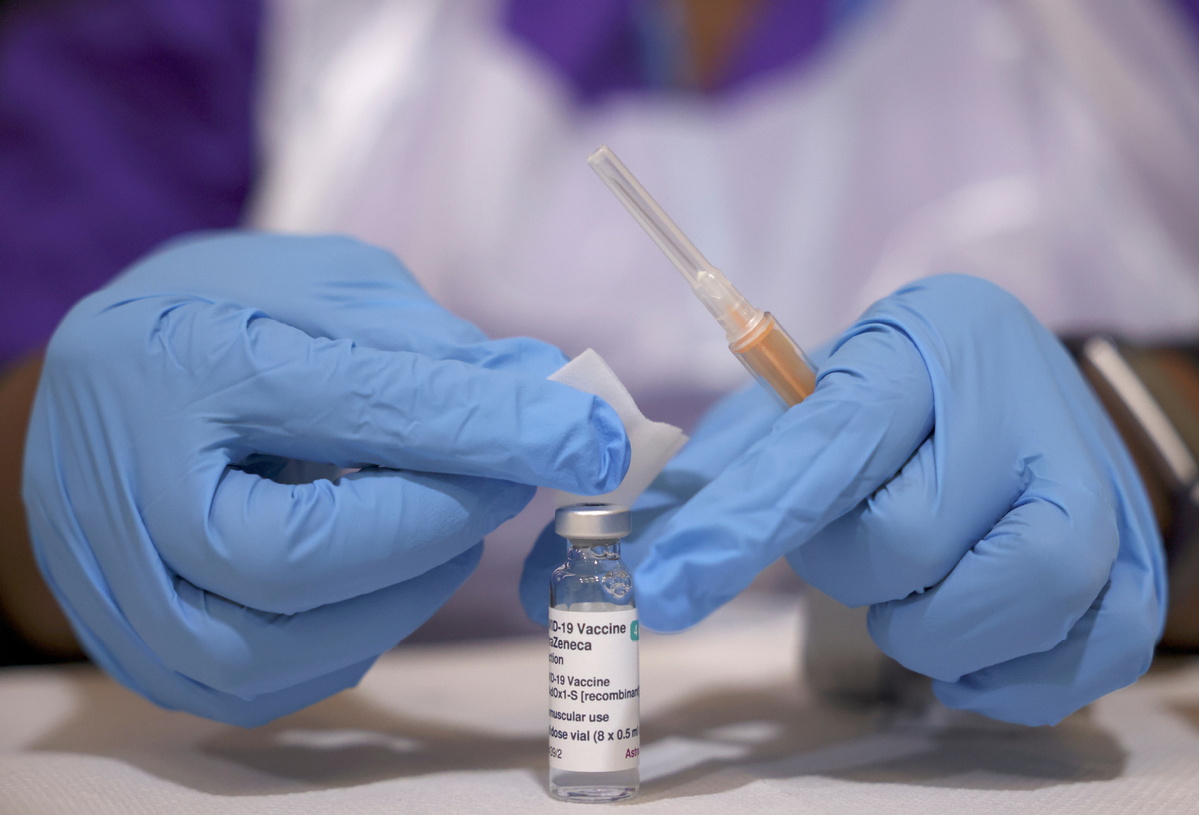Britain approves booster jabs for people under 50


European nations re-impose restrictions amid concern over fresh virus outbreaks
The United Kingdom government's vaccination advisors announced on Monday that the nation's COVID-19 vaccine booster program will expand to include healthy 40 to 49-year-olds.
In a news briefing, the Joint Committee on Vaccination and Immunisation, or JCVI, said all adults over the age of 40 should be offered a booster, six months after their second dose.
Jonathan Van-Tam, the UK's deputy chief medical officer, said in the briefing that he expected a "bumpy road ahead". He said he expected "respiratory viruses" this winter and that he is "concerned" that flu will add to more problems.
Wei Shen Lim, chair of COVID-19 immunization for the JCVI, said booster vaccine doses in more vulnerable adults are important to increase protection against infection and severe disease. He said: "These vaccinations will also help extend our protection into 2022."
The BBC reported that while the uptake of first and second vaccine doses has dropped off in the UK, there has been a steep rise in people having booster doses. It noted that so far, more than 12.6 million people, or 22 percent of the population over the age of 12, have now had a booster jab.
British ministers have urged people to get boosters when they are offered, in the hope that restrictions over Christmas can be avoided.
Speaking to ITV News, government minister Oliver Dowden said that it is "in our hands" to protect "what we love" over the winter, including Christmas.
He added: "The vaccine rollout is the way that we protect Christmas, and what you see over time is that vaccine efficacy starts to fall away."
Reuters news agency reported that Germany's novel coronavirus infection rate has climbed to its highest level since the start of the pandemic, according to the latest public health figures published on Monday.
The three political parties in Germany involved in ongoing talks to form a new coalition government are planning an extension of measures to tackle the pandemic.
The co-leader of the Green Party, Robert Habeck, said measures would be announced before their plans go to Parliament on Thursday.
"We are expanding the toolbox compared to the proposals introduced in the first reading," Habeck told broadcaster ARD. An amendment seen by Reuters said measures will include contact restrictions.
The Financial Times reported that restrictions on movement to contain a surge in new novel coronavirus cases across the European Union will focus on the unvaccinated, and will have a milder impact on economic growth.
The paper said COVID-19 cases in Europe have risen to their highest 14-day rolling average for nine months, but that a return to strict lockdowns is unlikely as almost two-thirds of the EU population has been fully vaccinated. It noted that economists say it means Europe is better able to withstand a winter wave of COVID-19.
The BBC reported on Monday that about two million people who have not been fully vaccinated against COVID-19 have been placed in lockdown in Austria as the country faces a surge in cases, according to the nation's chancellor, Alexander Schallenberg. He said: "We must raise the vaccination rate. It is shamefully low."
Meanwhile, the outsourcing company Serco has upgraded its profit expectations for the year due to greater demand for COVID-19 and immigration-related work, it said in an update on Monday.
The company explained in a statement that the volume of its COVID-related work in the UK and Australia "has been higher and continued for longer than we anticipated". The company runs large parts of the UK's largely privatized test-and-trace service. It added that a number of immigration-related contracts also performed "better than we expected".

































